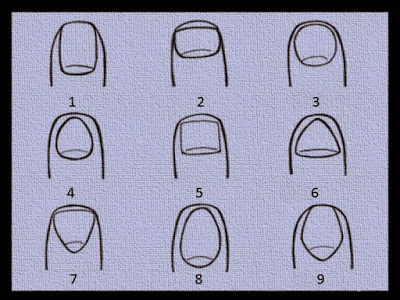Personality tests are found almost everywhere on the internet these days but do they really work? While some of them may be a bit credible, others that tell you that your fingernails can tell a lot about you are just plain stupid. People with a decent level of self-understanding rarely go for such tests.
Although, sometimes even those who are pretty sure about themselves feel tempted to check them out just in case something new about their personality pops up. They may claim that they did it just for ‘fun’ but a part of their mind is still busy contemplating the results.

Following are the reasons why personality tests don’t work, no matter how sophisticated or advanced they may appear to be…
You know it’s a personality test
When people are told they’re about to take a personality test, their reputation is on the line. Especially if the results of the test are going to be made public, they do their best not to obtain a negative result. Nobody wants to look bad, especially in front of the public.
So when you tell people that they’re going to take a personality test and that they should answer each question honestly, little do you realize that reputation is much more important to humans than being honest. So they deliberately try to get the best possible results.
This is why personality tests (such as the MBTI test) and psychological studies in which the subjects are given little or no information about what’s going on tend to be a bit more authentic because there is little scope for manipulation.
Generalized questions
Say you want to take a personality test and manage to gather a bunch of participants. What usually happens in a personality test is that you draft a list of questions with multiple choice answers. Then you tabulate the results and make categories in which your different participants are supposed to fall on the basis of their score.
But the irony is that each one of your participants has gone through a different life experience than the others. How can you possibly be sure that they can relate to the questions you throw at them? And then fit them into a few pre-set categories on the basis of answers that in all likelihood may have nothing to do with their personal life?
It’s like assuming life follows a few well-known tracks and everyone, by default, falls into one of those tracks. For instance, say you had this as one of your questions in the list:
Q- When I’m angry with someone because they ignored me, I
a) confront them directly and ask for an explanation for their behaviour
b) start ignoring them and promise myself not to talk to them again
c) tell myself I’m unnecessarily being angry and move on
The answer to the above question depends on so many variables. Who is this someone you’re angry with? A lot depends on that person, especially the course of action that you’re likely to take. If this person is someone you love, then you’re likely to choose option a) or c). If, however, they’re just an acquaintance, option b) may be the likely course of action.
In short, there is no one answer to any question. There can be hundreds of factors involved that can affect your likely course of action- relationship with the person, the context of the situation, your recent life events, your mood and so on.
And on top of it all, what if the most appropriate answer for you isn’t mentioned in the options? Oh don’t worry about that, it’s written at the top, “Tick the most appropriate choice”. So what if it isn’t even close to your perceived appropriate answer, just tick it.
In some questionnaires, there’s also that last option, “can’t say” that I find really funny. I mean, if I answer “can’t say” to every question in the list, does that mean I have no personality?
Oh yes, that’s me!
When the test results are out, a participant is excited to hear the revelations. This is a crucial moment because at this point he’ll either realize that all this testing was flapdoodle or he’ll believe the results.
You need to realize that these tests are designed in such a way that both your positive and negative traits are revealed, just to appear authentic. Obviously, you’re likely to raise a brow if only positive or negative results are shown.
As soon as you see the results, you begin to recall the life experiences that fit into those results! This is known as confirmation bias. For example, if the results tell you that you’re an ‘impatient’ person, then you’ll recall previous life incidents that prove it while forgetting about the incidences where you behaved very patiently.
Long ago, when I was in high school, I was always excited to read those horoscope snippets they showed in the newspapers. I was surprised by how accurately they matched my life. However, one day I realized that the snippets contained very vague and general information with which anyone could relate.
After all, they never told me anything specific, such as what’s going to happen to me on Sunday morning at 9 AM. So I decided to put these snippets to a little test.
I read out the Leo horoscope to my sister who was a Scorpio and asked her how true she thought it was. To my astonishment, she told me that all of it was true and matched her current life perfectly. I then revealed to her that I was actually reading a Leo horoscope!
The same goes for personality tests. Try this little experiment- make a friend do a little personality test and afterwards narrate to them the personality traits that were not predicted by their score. You’ll see confirmation bias in action as they recall past experiences that seem to fit the results they did not get.
4) Programming you with traits you may not have
Perhaps the most dangerous effect of taking these tests is that they can program your mind with beliefs that you didn’t even have in the first place.
Say you took a personality test from a trusted source and it revealed that you’re an arrogant person. You’ll immediately scan your past to look for any incidences that prove this.
Even if you’re unable to find any support for this new “I’m arrogant” belief that has been planted into your mind by a trusted source, your mind may start to ‘create’ the support that it needs to hold the new belief firmly in place.
In less mystifying words, you may start to create life experiences that prove to you that you’re an arrogant person. You may start to behave arrogantly even if you weren’t an arrogant person before just to support the belief that was planted into your mind by a trusted source.
If a belief has to stay in your mind it needs support, it needs complementary experiences to feed and thrive on, even if it means making you act like a jerk.
